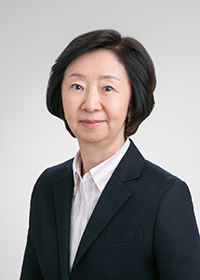- HOME
- About JBMP
- Greetings from the Representative Director
Greetings from the Representative Director
Greeting

According to the International Labour Organization’s (ILO) International Standard Classification of Occupations (ISCO-08), the occupation of ‘Medical Physicist’ is the ‘profession that applies scientific knowledge related to physics to the field of medicine’. In Japan, a medical physicist is defined as ‘a person who plays a leading role in solving physical and technical challenges in radiation medicine’ and is certified by the Japanese Board for the Medical Physicist Qualification (JBMP).
Medical physicists are involved in medicine, research and development, and education. They contribute to the development of medical science and treatment in the fields of radiotherapy physics, imaging physics, medical nuclear physics, and radiological protection and safety control.
In Japan, the certification of medical physicists began with the certification of 70 individuals in the first medical physicist certification examination conducted by the Japanese Radiology Society (JRS) in 1987. Initially, it was a qualification certification for graduates in the science and engineering fields to engage in medical physics work, and even in 2002, there were only 140 certified medical physicists. Then, few medical physicists were engaged in clinical practice as their position in the medical field was unclear. However, many medical physics operations were conducted due to advances in radiation equipment and technology. In 2002, we revised the medical physicist certification rules to enable radiological technologists who meet certain conditions to also obtain qualifications. Since the 2004 revision of the payment system for medical services, a requirement arose for those who specialise in medical physics to become involved in the billing of fees for high-precision radiotherapy. This bolstered the recognition of medical physicists, with the number of certified medical physicists increasing to 499 in 2008.
Following the expansion of the accreditation business, JBMP was established in 2009 with JRS and the Japanese Society of Medical Physics (JSMP: separated from JRS in 2000) as property contributors. In 2012, the Japanese Society for Radiation Oncology (JASTRO) joined, and with the support of three academic societies, we are now accredited as medical physicists, accredited by the medical physics education course, and other related projects.
The training of quality medical physicists requires an appropriate educational curriculum and courses. The medical physics education curriculum was formulated by the JRS Medical Physics Committee in 2008. Then, it was taken over by JBMP, before being revised in 2011, 2014, 2018, and 2020 to address advances in equipment as well as technological and social needs. The medical physics education system has been improved with the inclusion of the graduate school medical physics education course in the ‘Cancer Professional Training Plan’, launched as a measure of the Ministry of Education, Culture, Sports, Science, and Technology in 2007. In 2012, the JBMP began certifying medical physics education courses that were taught according to the medical physics education curriculum as the ‘Certified medical physics education course’. As of April 2025, 25 master’s programs across 23 graduate schools, 10 doctoral programs across 9 graduate schools, and clinical training courses in two hospitals have been certified.
Medical physicists are advancing with annual certification examinations and certification judging, resulting in 1,539 individuals qualifying as medical physicists as of January 2025. Additionally, in response to the increasing activity of medical physicists in the radiotherapy field, a certification system for medical physicists specialising in radiotherapy was launched in 2019. As of January 2025, 100 individuals were certified through this system.
The aim of JBMP is to carry out a medical physicist certification business, thereby contributing to the development of medicine and medical care. We will continue our efforts to develop a system whereby medical physicists can benefit the public through various appropriate radiation medicines. We ask for the support and cooperation of all those involved.
Japanese Board for Medical Physicist Qualification
Kumiko Karasawa, Representative Director